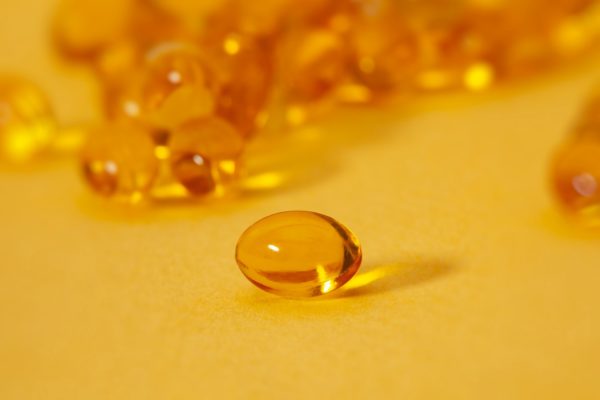What You Need To Know About Bloating: Causes & Prevention
Discomfort, pain, and a full and protruding belly mark the ever-so-unpleasant symptoms of bloating. Some people experience it all the time, even daily, whereas the lucky ones seldom do, perhaps only on holidays when we stuff ourselves with food!
If you often struggle with this, you likely find yourself desperately searching for “cures” or even just information on why it’s happening in the first place. In this article, we’ll dive into many of the leading causes of bloating, how to prevent it, and if all else fails, how to manage it.
What Causes Bloating?
There are three main culprits when it comes to bloating. This includes diet, how we eat, medical conditions, and hormonal causes. Let’s explore each one a little more.
Dietary Causes & Prevention
Many common foods (even healthy ones!) can contribute to bloating. Individual differences do exist here. However, many foods affect a significant number of people the same.
Dairy Products
First things first, dairy products. Dairy can cause bloating, especially in those who are lactose intolerant. Lactose intolerance means you lack the enzyme lactase, which is needed to digest lactose, the sugar found in dairy products. This makes sense since humans weren’t designed to consume another animal’s milk. So bloating and gas will occur when food passes through our gastrointestinal tract undigested.
Beyond those who are lactose intolerant, many people do still experience bloating from dairy products since it is one of the most common food sensitivities. Although it is implied if you are experiencing bloating from dairy, the solution is to remove it from your diet.
Food Sensitivities
Food sensitivities or intolerances are another dietary cause of bloating. As speculated earlier, these sensitivities can vary from person to person. In addition, our immune system, gut health, and overall individual differences cause food sensitivities and intolerances to be unique to each of us.
However, like dairy products, several foods are more common than others to cause problems, such as gluten, eggs, corn, and soy. Some more examples include nightshade vegetables and high-FODMAP foods. FODMAP stands for fermentable oligosaccharides, disaccharides, monosaccharides, and polyols. Removing these foods can provide relief.
However, a diverse diet is one of the most critical factors for optimal health, so it is worthwhile to reintroduce them after about six weeks and monitor your body for symptoms. Then, if you still experience bloating, you could remove them for a more extended time and try again. Of course, for some people, the sensitivities won’t go away, but regardless, this emphasizes the importance of good gut health, which ultimately allows you to tolerate most foods.
Plant Foods
Next on the list are more plant foods that can contribute to bloating. Before we dive into this, though, it is essential to mention that just because these foods can cause bloating does not mean they are unhealthy. In fact, many of the foods here are some of the healthiest on the planet!
Often, all that’s needed to reduce or prevent bloating is to start by eating small amounts of these foods and work your way up to larger portions. Some examples include legumes such as beans and lentils, garlic, onions, apples, and cruciferous vegetables such as broccoli and cauliflower.
In general, these are hard for our bodies to break down because they contain carbohydrates resistant to digestion which get fermented in our gut and can contribute to excess gas and therefore bloating. As mentioned above, start by eating small amounts and work your way up to prevent the bloat. Cooking cruciferous vegetables before eating them can be helpful too.
The Way We Eat
HOW we eat can actually cause bloating, not just WHAT we eat. Earlier, we discussed how undigested food could contribute to bloating, and since digestion starts in the mouth, not chewing your food enough times is a huge factor.
We tend to eat quickly when we have a delicious meal or are in a rush. However, each bite should be chewed at least 20 times! It will feel weird initially, but try it at your next meal and see if it helps reduce bloating.
Next, drinking a ton of water during mealtime can contribute to bloating. This is because we have specialized digestive enzymes in our stomach that help digest our food, but when we consume large amounts of water during a meal, we dilute them. This can result in food needing to be adequately digested when it enters our intestines.
Finally, being distracted while you eat (think TV, cell phone, etc.) can result in bloating as well! Mindful eating is essential for many reasons, especially regarding our digestion. If your mind is elsewhere, your body won’t be able to process food properly.
Medical Conditions
One of the most common illnesses that causes bloating is irritable bowel syndrome (IBS). This occurs due to excess gas production, dysfunctional muscle activity in the abdominal wall, and abnormal perception of normal amounts of gas in the GI tract.
Bloating is also very common in those who have gastroesophageal reflux disease (GERD), the condition in which stomach acid flows up into your esophagus. Small intestinal bacterial overgrowth (SIBO) is another major culprit as well. In this case, the overgrowth of bacteria ferments the carbohydrates we consume, resulting in excess gas. If you are, or think you might be, suffering from any of these illnesses, you should talk to your doctor to confirm and determine a treatment plan.
Hormonal Causes
The final cause we will discuss is related to changes in our hormones. For women, bloating is more likely to occur before or during menstruation. However, specific hormonal imbalances in your body can result in bloating as well.
You can have testing done through your family doctor or naturopath to determine if this is the case for you. Bloating is also very common during perimenopause and menopause due to the hormonal changes that occur during this time.
What To Do If You’re Bloated
Although no trick will magically cure your bloating, you can utilize a few strategies to help ease your symptoms, including:
- Drinking peppermint and ginger tea is excellent for any digestive discomfort.
- Exercise can help release gas from the body, making it a helpful tool to combat bloating.
- In alternative medical practices, digestive bitters are sometimes utilized.
- Supplements like probiotics and digestive enzymes can also be helpful, but it’s always a good idea to talk to your healthcare practitioner before starting anything new.
Final Note
Although we’ve discussed many common causes and strategies for preventing and managing bloating, we did not cover every single one. If you are experiencing persistent bloating, you can get support from a naturopathic doctor or nutritionist to help determine the cause and what you can do about it.




